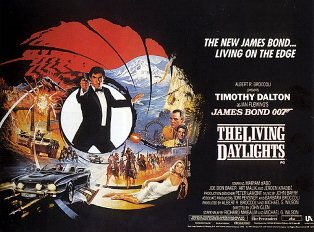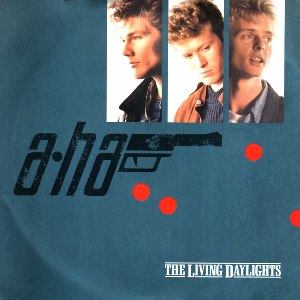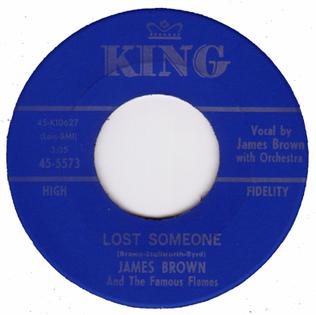
Daylight saving time (DST), also referred to as daylight savings time, daylight time, or summer time, is the practice of advancing clocks during warmer months so that darkness falls at a later clock time. The typical implementation of DST is to set clocks forward by one hour in either the late winter or spring, and to set clocks back by one hour in the fall or autumn to return to standard time. As a result, there is one 23-hour day in early spring and one 25-hour day in the middle of autumn.

Chengyu are a type of traditional Chinese idiomatic expression, most of which consist of four characters. Chengyu were widely used in Classical Chinese and are still common in vernacular Chinese writing and in the spoken language today. According to the most stringent definition, there are about 5,000 chéngyǔ in the Chinese language, though some dictionaries list over 20,000. Chéngyǔ are considered the collected wisdom of the Chinese culture, and contain the experiences, moral concepts, and admonishments from previous generations of Chinese speakers. Nowadays, chéngyǔ still play an important role in Chinese conversations and education. Chinese idioms are one of four types of formulaic expressions, which also include collocations, two-part allegorical sayings, and proverbs.
The advocatus diaboli is a former official position within the Catholic Church, the Promoter of the Faith: one who "argued against the canonization (sainthood) of a candidate in order to uncover any character flaws or misrepresentation of the evidence favoring canonization".

The expression “the elephant in the room” is a metaphorical idiom in English for an important or enormous topic, question, or controversial issue that is obvious or that everyone knows about but no one mentions or wants to discuss because it makes at least some of them uncomfortable and is personally, socially, or politically embarrassing, controversial, inflammatory, or dangerous. The metaphorical elephant represents an obvious problem or difficult situation that people do not want to talk about.

The Living Daylights is a 1987 spy film, the fifteenth entry in the James Bond series produced by Eon Productions, and the first of two to star Timothy Dalton as the fictional MI6 agent James Bond. Directed by John Glen, the film's title is taken from Ian Fleming's short story "The Living Daylights", the plot of which also forms the basis of the first act of the film. It was the last film to use the title of an Ian Fleming story until the 2006 instalment Casino Royale. It is also the first film to have Caroline Bliss as Miss Moneypenny, replacing Lois Maxwell. The film was produced by Albert R. Broccoli, his stepson Michael G. Wilson, and co-produced by his daughter, Barbara Broccoli. The Living Daylights grossed $191.2 million worldwide, and received mixed reviews from critics.

Octopussy and The Living Daylights is the 14th and final James Bond book written by Ian Fleming in the Bond series. The book is a collection of short stories published posthumously in the United Kingdom by Jonathan Cape on 23 June 1966.

A head is the part of an organism which usually includes the ears, brain, forehead, cheeks, chin, eyes, nose, and mouth, each of which aid in various sensory functions such as sight, hearing, smell, and taste. Some very simple animals may not have a head, but many bilaterally symmetric forms do, regardless of size.

Conflation is the merging of two or more sets of information, texts, ideas or opinions into one, often in error. Conflation is defined as fusing or blending, but is often misunderstood as ‘being equal to’ - treating two similar but disparate concepts as the same. Merriam Webster suggest this happened relatively recently, entering their dictionary in 1973.
"Hold your horses", sometimes said as "Hold the horses", is an English-language idiom meaning "wait, slow down". The phrase is historically related to horse riding or travelling by horse, or driving a horse-drawn vehicle. A number of explanations, all unverified, have been offered for the origins of the phrase, dating back to usage in Ancient Greece.
In lexicography, a lexical item is a single word, a part of a word, or a chain of words (catena) that forms the basic elements of a language's lexicon (≈ vocabulary). Examples are cat, traffic light, take care of, by the way, and it's raining cats and dogs. Lexical items can be generally understood to convey a single meaning, much as a lexeme, but are not limited to single words. Lexical items are like semes in that they are "natural units" translating between languages, or in learning a new language. In this last sense, it is sometimes said that language consists of grammaticalized lexis, and not lexicalized grammar. The entire store of lexical items in a language is called its lexis.
In politics, "the line", "the party line", or "the lines to take" is an idiom for a political party or social movement's canon agenda, as well as ideological elements specific to the organization's partisanship. The common phrase "toeing the party line" describes a person who speaks in a manner that conforms to their political party's agenda. Likewise, a party-line vote is one in which most or all of the legislators from each political party voted in accordance with that party's policies. In several countries, a whip attempts to ensure this. The Marxist–Leninist concept of democratic centralism involves strict adherence to, and defence of, a communist party's positions in public known as the general line of the party or political line.
American Sign Language (ASL), the sign language used by the deaf community throughout most of North America, has a rich vocabulary of terms, which include profanity. Within deaf culture, there is a distinction drawn between signs used to curse versus signs that are used to describe sexual acts. In usage, signs to describe detailed sexual behavior are highly taboo due to their graphic nature. As for the signs themselves, some signs do overlap, but they may also vary according to usage. For example, the sign for "shit" when used to curse is different from the sign for "shit" when used to describe the bodily function or the fecal matter.

To take point, walk point, be on point, or be a point man is to assume the first and most exposed position in a combat military formation, that is, the leading soldier or unit advancing through hostile or unsecured territory. The term can be applied to infantry or mechanized columns. The soldier, vehicle, or unit on point is frequently the first to take hostile fire. The inherent risks of taking point create a need for constant and extreme operational alertness. However, ambushes often intend to let the point element past the prime kill zone in order to be maximally effective. Point position is often rotated periodically so as not to overtax the individual soldier/unit.
The Living Daylights is a 1987 James Bond film.

"The Living Daylights" is the theme song from the 1987 James Bond film of the same name, performed by Norwegian band A-ha. It was written by guitarist Pål Waaktaar. A revised version of the song was included on the band's third studio album, Stay on These Roads (1988).
"Send to Coventry" is an idiom used in England meaning to deliberately ostracise someone. Typically, this is done by not talking to them, avoiding their company, and acting as if they no longer exist. In essence, and by modern parlance, it means to ‘ghost’ someone. Coventry is an historical cathedral city in Warwickshire.

"Lost Someone" is a song recorded by James Brown in 1961. It was written by Brown and Famous Flames members Bobby Byrd and Baby Lloyd Stallworth. Like "Please, Please, Please" before it, the song's lyrics combine a lament for lost love with a plea for forgiveness. The single was a #2 R&B hit and reached #48 on the pop chart. According to Brown, "Lost Someone" is based on the chord changes of the Conway Twitty song "It's Only Make Believe". Although Brown's vocal group, The Famous Flames did not actually sing on this tune, two of them, Bobby Byrd, and "Baby Lloyd " Stallworth, co-wrote it with Brown, and Byrd plays organ on the record, making it, in effect, a James Brown/Famous Flames recording.

"Don't throw the baby out with the bathwater" is an idiomatic expression for an avoidable error in which something good or of value is eliminated when trying to get rid of something unwanted.

Skeleton in the closet or skeleton in the cupboard is a colloquial phrase and idiom used to describe an undisclosed fact about someone which, if revealed, would damage perceptions of the person. It evokes the idea of someone having had a human corpse concealed in their home so long that all its flesh had decomposed to the bone. "Cupboard" may be used in British English instead of the American English word "closet". It is known to have been used as a phrase, at least as early as November 1816, in the monthly British journal The Eclectic Review, page 468. It is listed in both the Oxford English Dictionary, and Webster's Dictionary, under the word "skeleton". The "Cambridge Academic Content Dictionary" lists it under this but also as a separate idiom. In the most derisive of usage, murder, or significant culpability in a years-old disappearance or non-understood event, may be implied by the phrase.











